When I first told my friends I was heading to Albania solo, their reactions ranged from “Where’s that?” to “Is that even safe?” I get it. Albania doesn’t exactly scream “popular tourist destination” like Paris or Barcelona. Its post-communist history and Hollywood portrayals have given it an unfair reputation. But here’s the truth: Albania is generally safe for solo female travelers when you travel smart and stay aware of your surroundings.
This guide isn’t about sugar-coating things or scaring you away. I’m giving you the real deal—balanced perspectives, honest experiences from women who’ve been there, practical safety tips for solo women travelers, and insider advice you won’t find in generic travel guides. By the end, you’ll know exactly what to expect and how to make your Albanian adventure both amazing and secure.
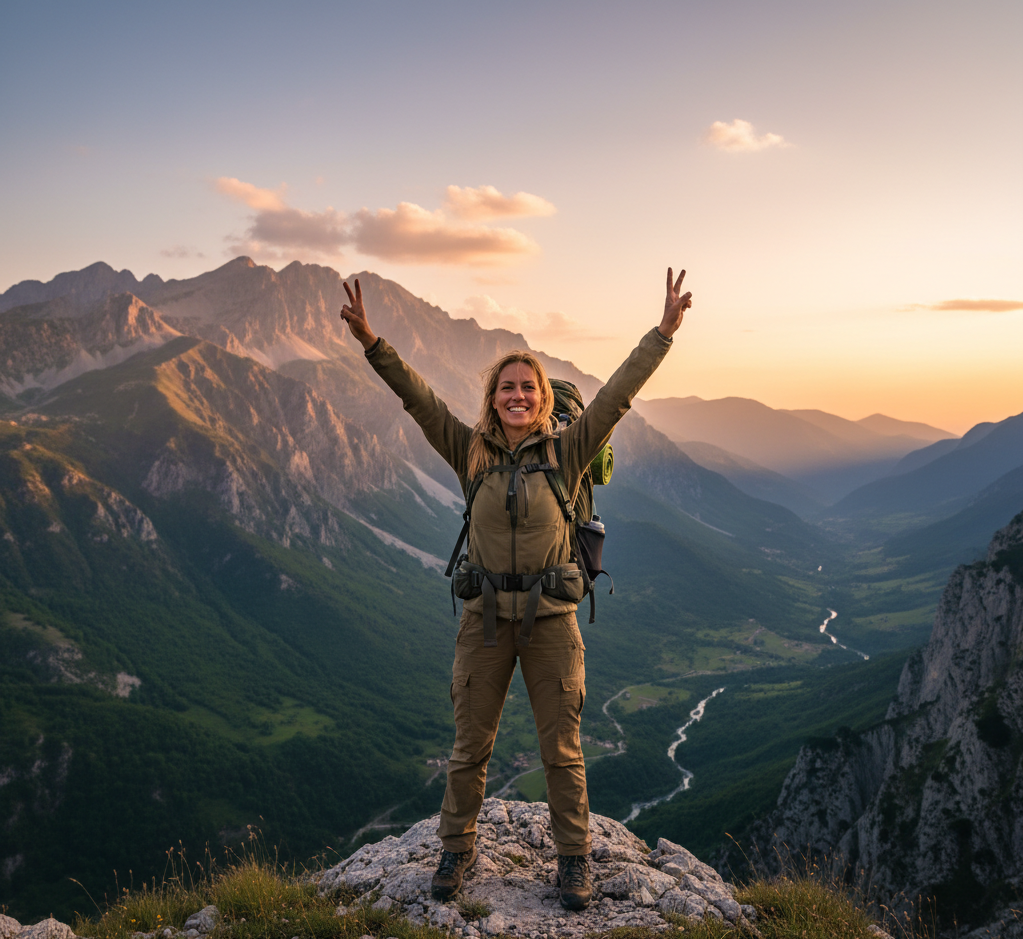
Quick Albania Safety Overview
| Category | Details |
| Overall Safety Rating | Generally safe – Level 2 (Exercise Increased Caution) |
| Crime Rate | Low – 1.2 per 100,000 (lower than US) |
| Best for Solo Women | Yes – ranked #49 safest globally for solo females |
| Main Concerns | Petty theft, street harassment (minimal), road safety |
| Visa Required? | No – 90 days visa-free for US/UK/EU citizens |
| Emergency Numbers | Police: 129, Ambulance: 127, General: 112 |
| Budget Level | Very affordable – €30-50/day |
| Best Time to Visit | May-September (beaches), Year-round (cities) |
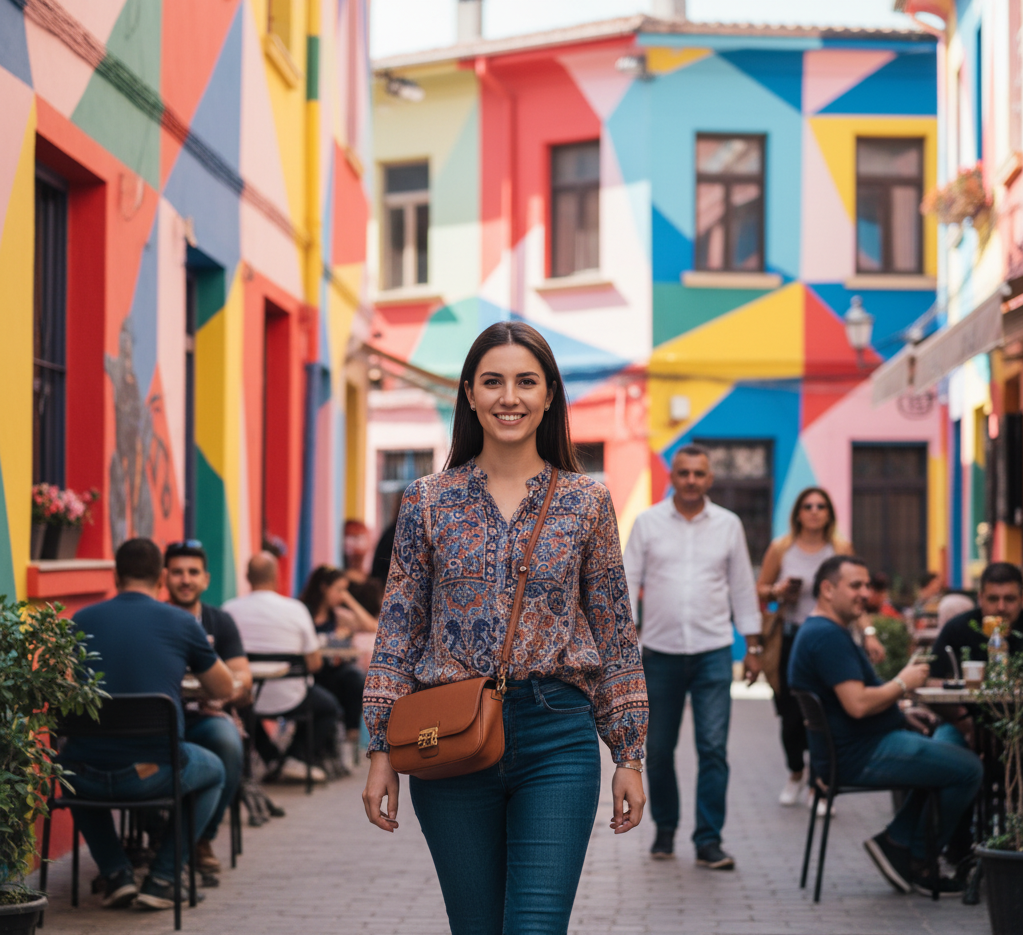
Why More Women Are Choosing Albania for Solo Travel
Albania is having a moment, and for good reason. This hidden Balkan gem is attracting solo female travelers in droves, and once you see what it offers, you’ll understand why.
The Appeal is Real
Albania hits that sweet spot every budget traveler dreams about—stunning scenery without the tourist prices. We’re talking turquoise beaches that rival Greece (seriously, Ksamil looks like the Maldives), dramatic mountain peaks in the Albanian Alps, and UNESCO World Heritage towns where you can wander ancient cobblestone streets virtually alone. Your money goes ridiculously far here. A delicious meal costs €5-8, hostels start at €10/night, and you can stay in charming guesthouses for €15-25.
But beyond the affordability, it’s the Albanian hospitality that wins hearts. The concept of “besa”—a traditional code of honor—runs deep here. Locals treat guests with incredible warmth and respect. Don’t be surprised if someone invites you for coffee after you ask for directions, or if a restaurant owner insists on walking you to your bus stop.
How Does Albania Compare to Other Balkan Countries?
If you’re planning a Balkans trip, female travel in the Balkans is generally safe across the board. Albania’s safety in Albania profile is similar to Montenegro and North Macedonia. Croatia gets more tourists and has more developed infrastructure, but Albania offers that raw, undiscovered feeling that makes you feel like an explorer rather than a tourist. The crime rates are comparable—actually, Albania’s intentional homicide rate is approximately 1.2 per 100,000 people, which is comparable to Poland and safer than the United States.
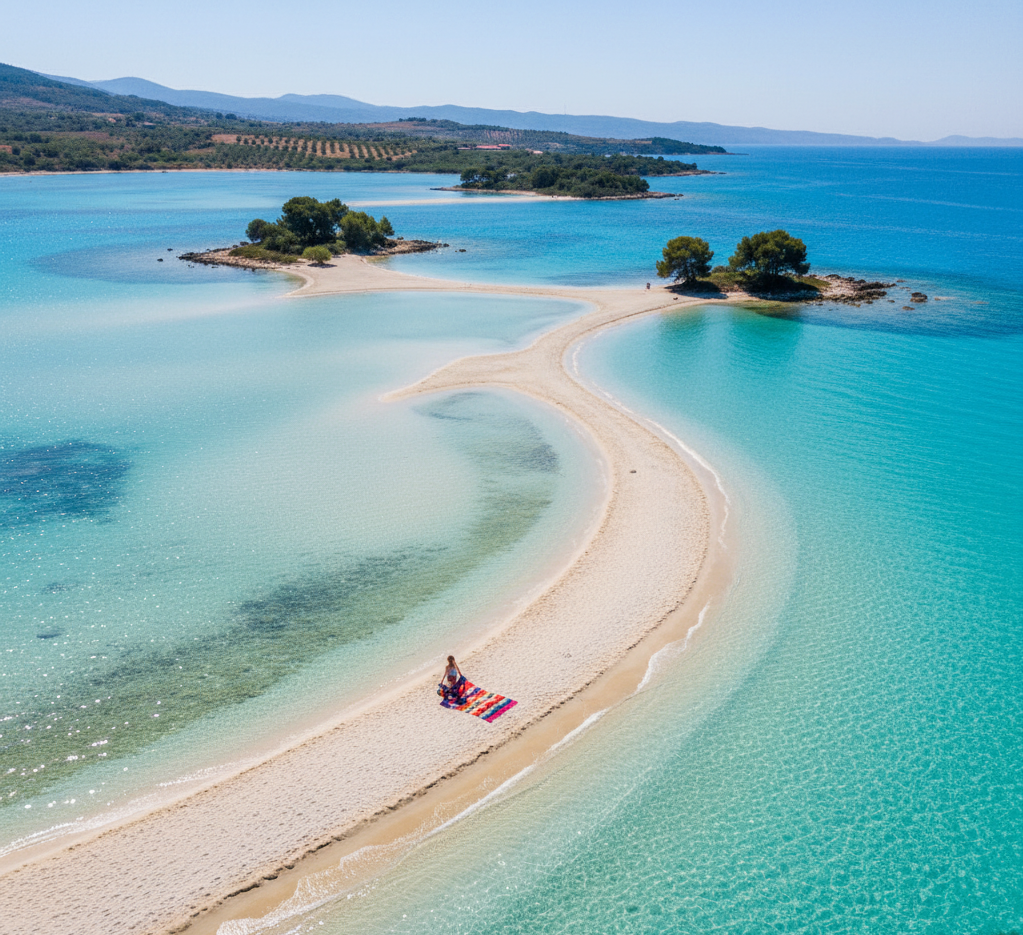
The Real Safety Picture in Albania
Let’s talk numbers and facts, not fear-mongering.
Crime Rates: What You Actually Need to Know
Here’s something that might surprise you: Albania recorded 33,845 offenses in 2023, which is near a 10-year low, with homicides dropping to 34 and pickpocketing falling 17% from 2020 to 2023. Violent crime against tourists is extremely rare. The U.S. Department of State maintains a Level 2 advisory (Exercise Increased Caution) for Albania due to crime connected to drug activity and organized crime, but here’s the important part—this organized crime stays within criminal networks and doesn’t spill over to tourists.
Petty crime like pickpocketing is your main concern, especially in crowded areas like:
- Tirana’s Skanderbeg Square and bus stations
- Beach towns during peak season (July-August)
- Public buses and furgons (shared vans)
- Markets and popular tourist spots
Putting It in Perspective
To give you context, Albania’s crime rate is lower than many Western European capitals. You’re statistically safer walking around Tirana than you are in parts of Rome, Barcelona, or even major U.S. cities. Expats in Tirana report feeling safe walking in the city center during the day and even at night, with petty theft being far less frequent than in major tourist cities.
Tourism’s Double-Edged Sword
Albania’s tourism boom is helping and hurting safety in Albania. The positive: better infrastructure, more English speakers, improved roads (well, in some areas), and increased police presence in tourist zones. The negative: more tourists mean more opportunities for scams and inflated prices. During peak summer season in places like Saranda, you’ll need to negotiate taxi prices and double-check restaurant bills.
Female-Specific Safety Considerations
This is the section you really came for, so let’s get specific about what women travelling alone in Albania can expect.
Street Harassment: The Reality
I’m not going to lie—you might experience some street harassment in Albania. It’s typically staring, catcalls, or unwanted comments, especially in larger cities. Some women report persistent attention from men in gyms or beaches. However, this is rarely aggressive or threatening. After politely declining offers from men in Saranda and Ksamil, they left her alone with no issues, and these encounters were not harassing or intimidating.
How to Handle Unwanted Attention:
- Walk with confident body language—shoulders back, purposeful stride
- Wear sunglasses to avoid eye contact
- A simple “jo” (no) in Albanian usually shuts things down
- Don’t feel bad about ignoring persistent strangers
- If someone makes you uncomfortable, head to a cafe or shop
- Consider wearing headphones (even if not playing music)
Cultural Norms and Dress Code
Albania is more conservative than Western Europe, especially outside Tirana. Here’s what works:
In Tirana and Coastal Areas: Pretty relaxed. You’ll see Albanian women in everything from modest clothing to Western fashion. Tank tops and shorts are fine during summer.
In Rural Areas and Religious Sites: Cover your knees and shoulders. When visiting mosques, you’ll need to cover your hair (scarves are usually provided). This isn’t just about respect—it helps you blend in and reduces unwanted attention.
Pro tip: Carry a lightweight scarf or shawl in your daypack. It’s perfect for entering religious sites and can serve as sun protection.
Women’s Healthcare and Medical Needs
Good news: health and medical care in Albania is accessible, especially in cities. Pharmacies (“farmaci”) are everywhere, and pharmacists often speak English. You can get birth control, feminine hygiene products, and over-the-counter medications easily. Most international brands are available.
Important Numbers to Save:
- Ambulance: 127
- Police: 129
- General Emergency: 112
- Fire: 128
The U.S. Department of State notes that law enforcement’s ability to protect and assist travelers is limited in some remote areas, so travelers should remain aware of their surroundings and the extent of police services in their location.
For serious medical issues, Tirana has the best hospitals. Outside major cities, medical facilities are basic. This is why travel insurance for women isn’t optional—it’s essential. Make sure your policy covers emergency evacuation.
Digital Safety for Solo Women
Staying connected is important for safety, but be smart about it:
- Don’t share your exact location in real-time on Instagram or Facebook
- Use location tags AFTER you’ve left a place
- Share your daily itinerary with a trusted friend or family member
- Use WhatsApp or messaging apps to check in daily
- Be cautious about new “friends” who find you online while you’re traveling
- Never share your accommodation details publicly
Practical Safety by Situation
Daytime Exploring
Albania feels very safe during the day. Here’s how to stay smart:
- Keep valuables in a crossbody bag worn in front
- Don’t flash expensive jewelry, cameras, or phones unnecessarily
- Use ATMs inside banks during business hours
- Trust your gut—if a street feels sketchy, take a different route
- In Tirana’s Blloku district (the trendy neighborhood), watch your belongings in busy cafes
- Carry a copy of your passport, not the original
Nighttime Navigation
Night safety requires more awareness:
- Stick to well-lit, populated streets
- Use ride-sharing apps (Bolt and Uber work in Tirana) instead of hailing taxis
- If taking a taxi, agree on the price BEFORE getting in
- Pre-book transportation from your accommodation
- If walking at night, walk like you know where you’re going
- Avoid parks and quiet residential areas after dark
- In beach towns, the waterfront promenades are generally safe and lively
Public Transportation Safety
Transportation safety Albania requires patience and flexibility:
Buses and Furgons: These are cheap but chaotic. Buses don’t always have fixed schedules, and drivers leave when the vehicle is full. Keep your bag on your lap or between your feet, not on the seat beside you. Furgons are shared vans—cramped but an authentic experience.
Taxis: Only use licensed taxis with meters or ride-sharing apps. At Tirana airport, ignore the aggressive taxi drivers and use Bolt. A ride to the city center should cost €10-15, not €30.
Driving Alone
Albania has one of Europe’s highest road death rates at 59 per million in 2022, with speeding, limited lighting, and livestock on rural roads remaining hazards. If you’re not comfortable with aggressive traffic, stick to buses or hire a driver. If you do rent a car:
- Get comprehensive insurance
- Avoid night driving, especially in mountains
- Watch for potholes, wandering animals, and unpredictable drivers
- The road to Theth (SH21) is now paved but still requires careful driving
Essential Logistics for Solo Women Travelers
Visa and Entry Requirements
U.S. citizens do not need a visa for Albania for stays up to one year. UK, EU, Canadian, Australian, and New Zealand citizens also get 90 days visa-free. Just make sure your passport is valid for at least six months beyond your travel dates.
Communication Basics
Albanian is a unique language, but don’t stress. Younger Albanians speak English, especially in tourist areas. Learn these key phrases:
- Hello: Përshëndetje (per-shen-det-yeh)
- Thank you: Faleminderit (fal-eh-min-deh-reet)
- Help: Ndihmë (n-dee-muh)
- How much?: Sa kushton? (sah koosh-ton)
- Yes: Po (poh)
- No: Jo (yoh)
- Water: Ujë (oo-yuh)
Download Google Translate’s offline Albanian pack before you go.
Money Matters
The Albanian Lek (ALL) is the official currency. ATMs are plentiful in cities and towns. Major credit cards work in hotels and larger restaurants, but Albania runs on cash, especially in smaller towns and markets. Carry small bills—breaking a €20 or 5,000 lek note can be difficult in rural areas.
Budget tip: You can survive comfortably on €30-40/day as a backpacker, or €50-70/day if you want more comfort.
Staying Connected
Get a local SIM card at the airport or any mobile shop. Vodafone, ALBtelecom, and One are the main providers. A month of data (10-20GB) costs €8-12. WiFi is available in most accommodations and cafes.
Travel Insurance (Seriously, Get It)
This isn’t optional for solo travel safety in Albania. Get comprehensive coverage that includes:
- Medical emergencies and hospitalization
- Emergency evacuation (critical for remote areas)
- Trip cancellation
- Lost or stolen belongings
- Adventure activities if you’re hiking
I recommend World Nomads or SafetyWing for flexible, digital-nomad-friendly policies.
Register with Your Embassy
U.S. citizens should enroll in the Smart Traveler Enrollment Program (STEP) to receive alerts and make it easier to locate them in an emergency. Other countries have similar programs. It takes 5 minutes and could be crucial in a crisis.
Best Places for Solo Female Travelers (With Safety Notes)
Tirana: The Vibrant Capital
Tirana is colorful, energetic, and largely safe. Skanderbeg Square is the heart of the city, surrounded by museums, cafes, and the beautiful Et’hem Bey Mosque. The Blloku district is where you’ll find trendy bars, restaurants, and nightlife.
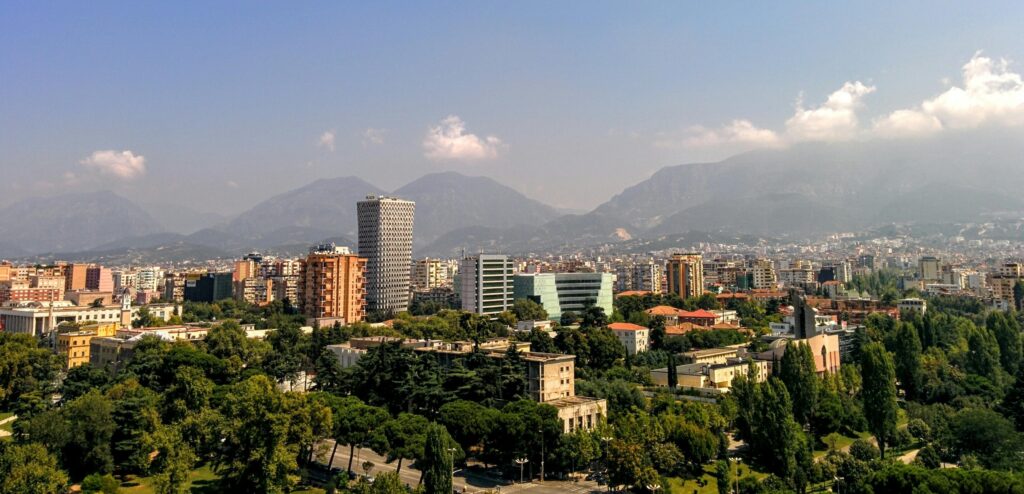
Safety note: Watch your belongings in busy nightlife areas. Some clubs have pushy promoters—you don’t need to go anywhere you don’t want to. Stick to well-reviewed places.
Berat: The “City of a Thousand Windows”
This UNESCO World Heritage town is peaceful, walkable, and perfect for solo exploration. The Ottoman-era white houses stacked up the hillside are magical. The castle offers stunning views, and the locals are incredibly welcoming.
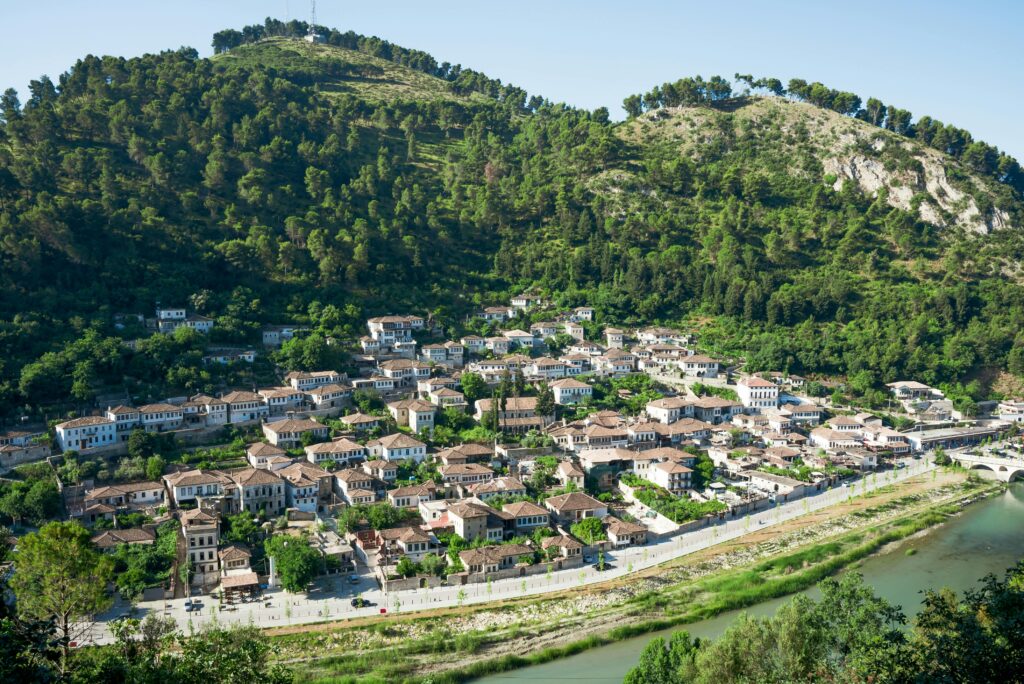
Safety note: The cobblestone streets can be slippery when wet. Comfortable walking shoes are essential.
Gjirokastër: The Stone City
Another UNESCO site, Gjirokastër feels like stepping back in time. The stone houses, massive castle, and ethnographic museum make it a history lover’s dream.
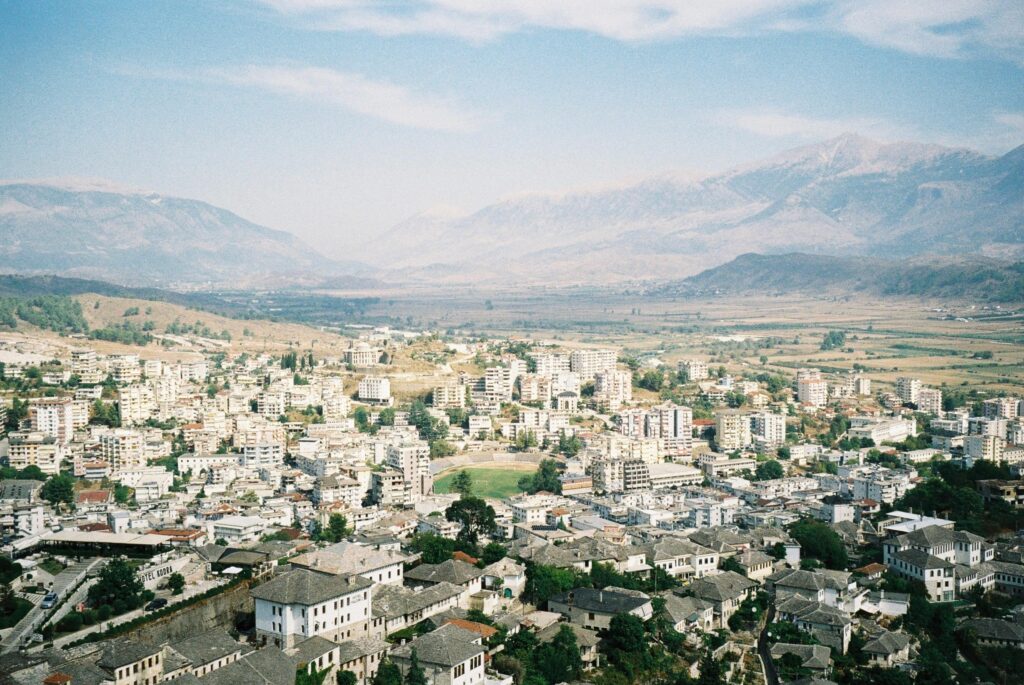
Safety note: Very safe and quiet. The castle path can be steep—take your time.
Shkodër and Theth: Mountain Magic
Shkodër is the gateway to the Albanian Alps. From here, you can take a furgon to Theth, a remote mountain village that’s absolutely breathtaking. The hikes are spectacular, and the guesthouses offer home-cooked meals and genuine hospitality.
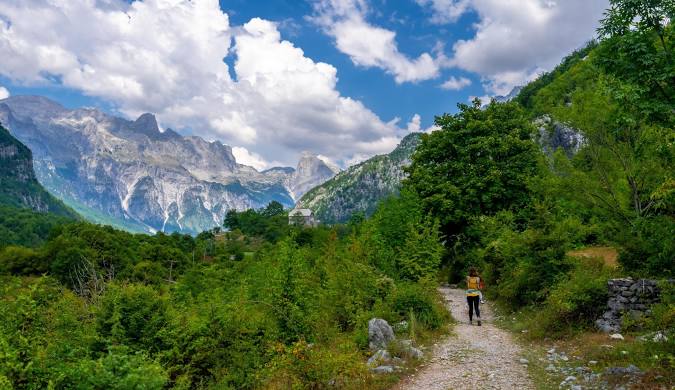
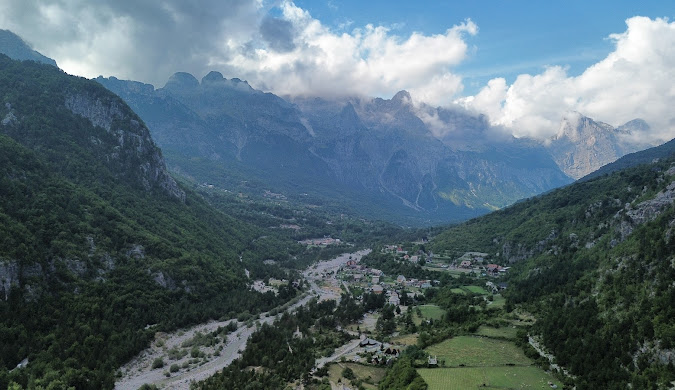
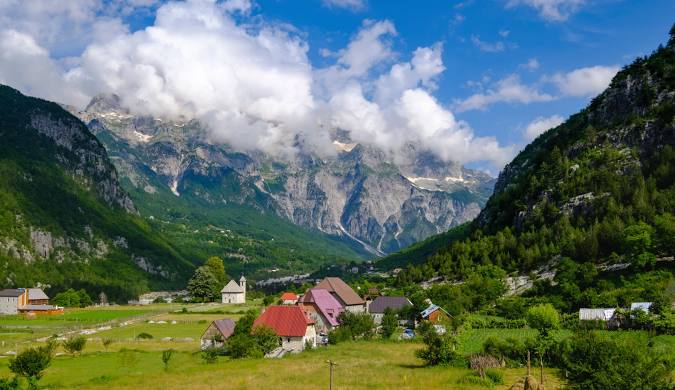
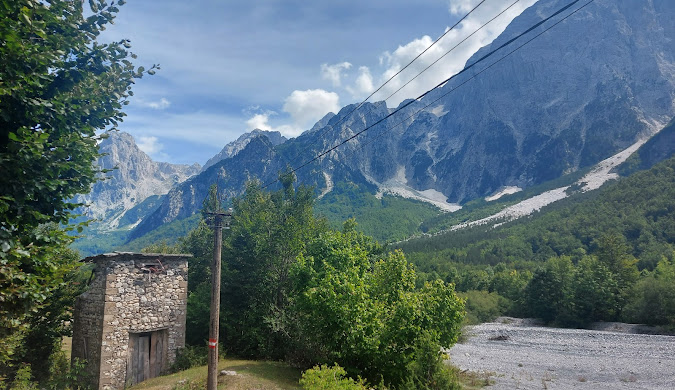
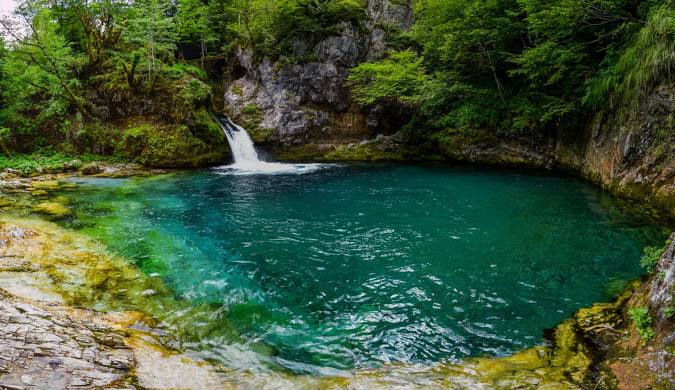
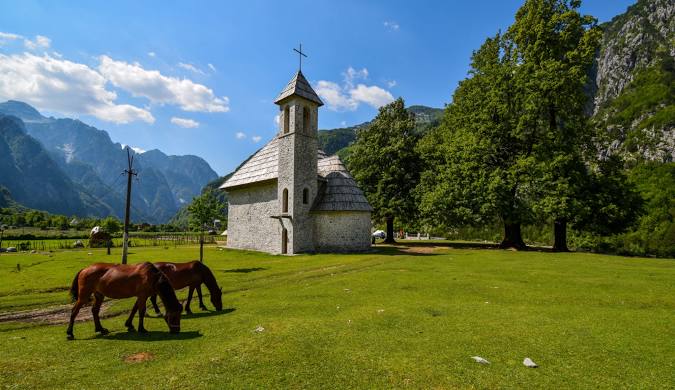
Safety note: Theth is remote with limited phone signal and no ATMs. Pre-book accommodation, bring cash, and don’t hike major trails alone without telling your guesthouse owner. The northern mountainous regions around Theth lack professional rescue services comparable to Central European Alps, so comprehensive travel insurance with medical evacuation coverage is essential. Hire a local guide for challenging hikes.
Albanian Riviera: Beach Paradise
Saranda, Ksamil, Himare, and Dhermi offer stunning beaches with crystal-clear water. Saranda is the liveliest with restaurants, bars, and easy access to nearby attractions like Butrint (ancient ruins).
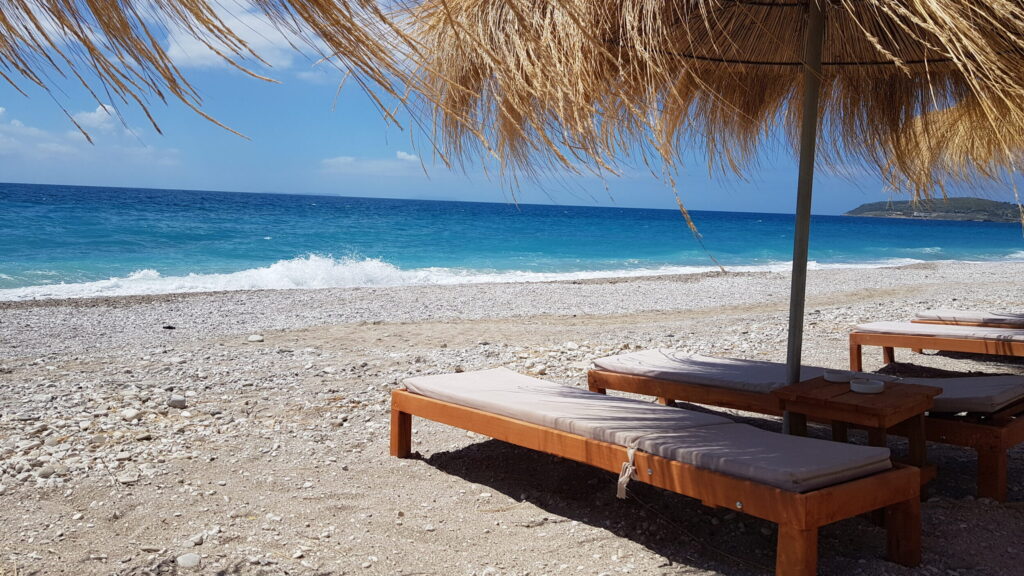
Safety note: Peak season (July-August) brings crowds and higher prices. Negotiate taxi fares beforehand. Watch your drinks if you’re out at beach bars. Some areas have inflated “tourist prices”—politely ask “sa kushton?” (how much) before ordering.
Sample Safe Itineraries for Solo Women
5-Day “Best of Both Worlds” Itinerary
Day 1-2: Tirana
- Explore Skanderbeg Square, National History Museum, Bunk’Art
- Wander the colorful Blloku district
- Safety tip: Use Bolt for airport transfer, pre-book your first night’s accommodation
Day 3: Berat
- Take a morning bus from Tirana (€5-7, 2.5 hours)
- Explore Berat Castle and Ottoman architecture
- Stay in a traditional guesthouse
- Safety tip: Book guesthouse in advance—owners often offer free pickup from bus station
Day 4-5: Albanian Riviera (Vlorë or Himare)
- Bus to the coast (3-4 hours)
- Relax on beaches, try fresh seafood
- Visit nearby hidden beaches
- Safety tip: In beach towns, book accommodation with good reviews—some budget places can be isolated
10-Day “Mountains to Sea” Itinerary
Day 1-2: Shkodër
- Explore Rozafa Castle, Marubi Photo Museum
- Prepare for mountain adventure
Day 3-5: Theth
- Furgon to Theth (rough 3-hour ride)
- Hike to Blue Eye, Grunas Waterfall
- Experience mountain guesthouse life
- Safety tip: Pre-book guesthouse as connectivity is limited; confirm furgon schedule in advance
Day 6-7: Komani Ferry to Fierza, then to Valbona
- Take stunning Komani Lake ferry
- Hike Valbona to Theth trail (if experienced) or relax in Valbona
- Safety tip: This hike requires fitness and proper gear—hire a guide if unsure
Day 8: Return to Shkodër
Day 9-10: Himare and Saranda
- Bus to Albanian Riviera
- Beach time, visit Butrint ruins
- Safety tip: In Saranda, use licensed taxis or walk—it’s a small town
Your Questions Answered
“Will locals respect me as a solo woman?”
Absolutely. Albanian culture places huge importance on guests and hospitality. You might get curious stares (especially in rural areas where tourists are rare), but this is usually harmless curiosity. One traveler noted that locals were so welcoming they drove her to her destination when she got lost, and offered her food and drinks. Respect goes both ways—dress modestly in conservative areas and learn a few Albanian phrases, and you’ll be treated wonderfully.
“What should I wear when visiting mosques or in rural villages?”
For mosques: Cover your knees, shoulders, and hair. Many mosques provide scarves at the entrance. In rural villages: Knee-length shorts/skirts and t-shirts with sleeves (even short sleeves) work fine. You don’t need to cover completely, but showing a lot of skin can attract unwanted attention and be seen as disrespectful.
“Is it safe to hike solo in the Albanian Alps?”
For well-marked, popular trails near Theth during the day with good weather—generally yes, but always tell your guesthouse owner your plans. For longer, more challenging hikes like Valbona to Theth Pass, I strongly recommend hiring a local guide (€30-50). The trails can be confusing, weather changes quickly in mountains, and cell service is nonexistent in many areas. Some remote areas near the Kosovo border have unexploded landmines, making it essential to stay on marked paths and heed warning signs.
“How can I meet other travelers in Albania?”
Hostels are your best bet—places like Homestel in Tirana organize pub crawls and group activities. Join Facebook groups like “Solo Female Travelers – Albania” or “Girls LOVE Travel.” Day tours and group hikes are great for meeting people. In Theth and Valbona, the guesthouses naturally create a communal atmosphere where travelers eat together. Many solo women use apps like Bumble BFF or join local expat groups on Facebook.
Your Pre-Departure Safety Checklist
Before You Leave Home:
- ✅ Get comprehensive travel insurance with medical evacuation coverage
- ✅ Register with your embassy’s travel program (STEP for Americans)
- ✅ Make copies of your passport, credit cards, insurance documents
- ✅ Share detailed itinerary with family/friend
- ✅ Download offline maps (Maps.me works great in Albania)
- ✅ Research your first night’s accommodation and transport
- ✅ Get vaccines if needed (check CDC Albania page)
- ✅ Load emergency numbers into your phone
- ✅ Pack a basic first-aid kit
- ✅ Bring a portable charger (power outages can happen)
While Traveling:
- ✅ Check in daily with someone at home
- ✅ Trust your intuition—if something feels off, leave
- ✅ Keep emergency cash hidden separately from your main wallet
- ✅ Don’t walk alone in remote areas after dark
- ✅ Vary your routine—don’t be too predictable
- ✅ Keep your phone charged
- ✅ Know your accommodation’s address in Albanian
- ✅ Have backup copies of documents in email/cloud storage
- ✅ Learn to say “leave me alone” in Albanian: “Më lër rehat” (muh luhr reh-hat)
Real Stories from Solo Female Travelers
The best way to understand is Albania safe for solo female travelers is to hear from women who’ve done it:
“I was nervous at first, but the hospitality blew me away. In Berat, a family invited me for coffee after I just asked for directions! I ended up staying for lunch and they showed me their family olive grove. It was one of the most memorable experiences of my trip.” – Chloe, UK
“My one challenge was a persistent taxi driver at the Tirana airport. I stood my ground, used a ride-sharing app instead, and it was fine. It’s about being firm but not rude. After that, I had zero problems with transportation.” – Maria, Spain
“I hiked alone near Theth and always felt safe. My small dog got more attention than I did! The guesthouse owners treated me like family. They packed me lunch for my hikes without even asking. This was the friendliest place I’ve traveled solo.” – Sarah, Canada
Final Thoughts: Should You Go?
Here’s my honest answer: Yes, absolutely, with preparation.
Albania is not a perfect, problem-free destination. You’ll deal with chaotic buses, occasional catcalls, language barriers, and roads that make you question your life choices. But you’ll also swim in pristine beaches, hike jaw-dropping mountains, eat incredible food for pennies, and experience hospitality that restores your faith in humanity.
The U.S. Department of State advises exercise increased caution in Albania due to crime, but this doesn’t mean you shouldn’t go—it means go smart. Thousands of women travel Albania solo every year and have amazing experiences. With the right mindset, reasonable precautions, and the tips in this guide, you can too.
Albania is safe for solo female travelers who travel with awareness, respect local culture, trust their instincts, and prepare properly. It’s not about being fearless—it’s about being informed and confident.
So pack that bag, download your offline maps, and get ready for an adventure. Albania is waiting, and trust me—it’s going to be incredible.
Have you traveled to Albania solo? Share your experiences and tips in the comments below! And if you’re planning a trip, drop your questions—our community of travelers is here to help.
Helpful Resources:
- U.S. Department of State – Albania Travel Advisory
- CDC Albania Travel Health Information
- UK Foreign Office – Albania Travel Advice
Stay safe, stay curious, and happy exploring!
– Xplorer, Xplore Heaven
Read More Articles;
- Madeira Travel Guide 2026: Top Things to Do, Best Itineraries & Insider Tips
- Tinajani Canyon Peru: Ultimate Travel Guide to the Valley of Stone Giants, Elevation, Trails & FAQs
- Isla Suasi: The Complete Guide to Peru’s Private Lake Titicaca Island
- Ikara-Flinders Ranges — Complete Travel Guide for 2026
- Phillip Island, Victoria: Ultimate Travel Guide (Wildlife, Best Time to Visit & Insider Tips)

I'm so happy to read this. This is the kind of manual that needs to be given and not the accidental misinformation that's at the other blogs. Appreciate your sharing this greatest doc.
Thanks forr sharing your thoughts on is albania safe for solo
female travelers. Regards
Perfect piece of work you have done, this internet site is really cool with fantastic information.